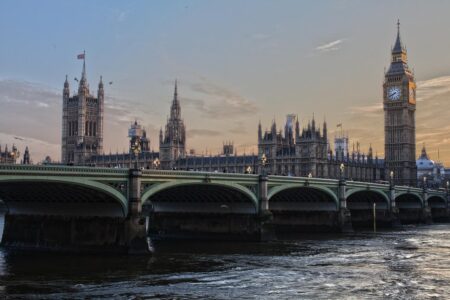
United Kingdom commits to tackling spread of terrorism in prisons following independent report
The UK Ministry of Justice Wednesday published an independent report on terrorism in prisons and committed to measures to suppress terrorist activity in jails.
The 81-page report, prepared by Independent Reviewer of Terrorism Legislation Jonathan Hall QC, is mandated under the Terrorism Act 2006.
The report takes note of terror activity supposedly linked to associations formed in prison, such as the 2020 Streatham stabbing by Sudesh Amman, who was convicted in 2018 and released on parole. It also notes previous government reports on the issue.
The report states the single largest threat of this nature is Islamist terrorism. The report found evidence of a highly structured “Muslim gang culture” in prisons, fostered by faith-based privileges such as separate food, places of prayer and prayer times.
Individuals convicted of serious offenses gain influence within these gangs and go on to groom other prisoners to commit violence against non-Muslim prisoners and prison officers.
Prisoners attempted to commit attacks in prison, celebrated terror attacks by shouting violent Islamist slogans and smuggled prison contraband, including audiovisual terror propagandist material—a process simultaneously buoyed by a 26% cut in prison staff between 2010 and 2017.
Of 14 recommendations made by the report, 11 have been accepted by the Ministry of Justice such as making prison governors formally accountable for reducing terror risks in their establishments.
The Home Secretary has accepted another recommendation to amend the Terrorism Act to bring the spread of terror propaganda within prisons under the act.
Since 2017, those prisoners determined to be the most dangerous have been placed in three “separation centers” completely, physically separate from the main prison population. While 21 prisoners were referred to these centers, only 15 were placed there.
The ministry explained that such low numbers emphasized the need for proposed amendments to the Human Rights Act which will make it difficult for individuals referred to separation centers to challenge their placement using “elastic interpretations.”
Further, the ministry said £1.2 million will be invested in identifying the “most influential and charismatic terrorists” to be placed in these centers and £6 million to expand “close supervision centers” for the “most physically violent offenders”, including those convicted of terror activities.
Deputy Prime Minister, Lord Chancellor and Justice Secretary, Dominic Raab stated: “The threat from terrorism is evolving, so our response must adapt … We [will] not [allow] cultural and religious sensitivities to deter us from nipping in the bud early signs of terrorist risk.”
As the government’s response to the shifting threat of terrorism, in 2021 the Counter-Terrorism and Sentencing Act introduced a minimum 14-year sentence for serious offenses, widened the definition of terror offenses and brought an end to the automatic release of terrorist offenders.
Source: Jurist





